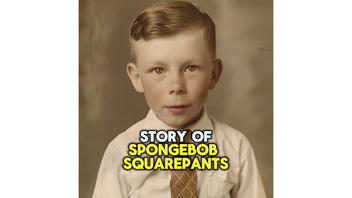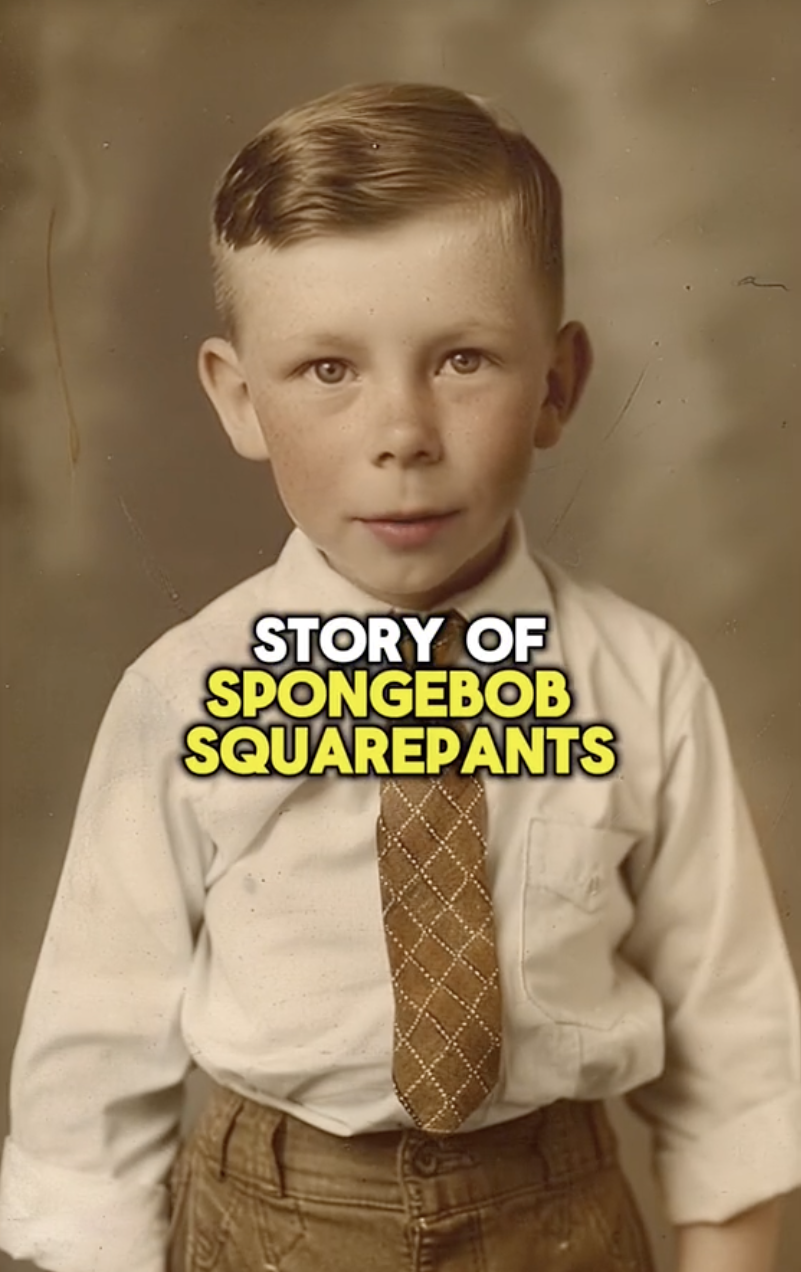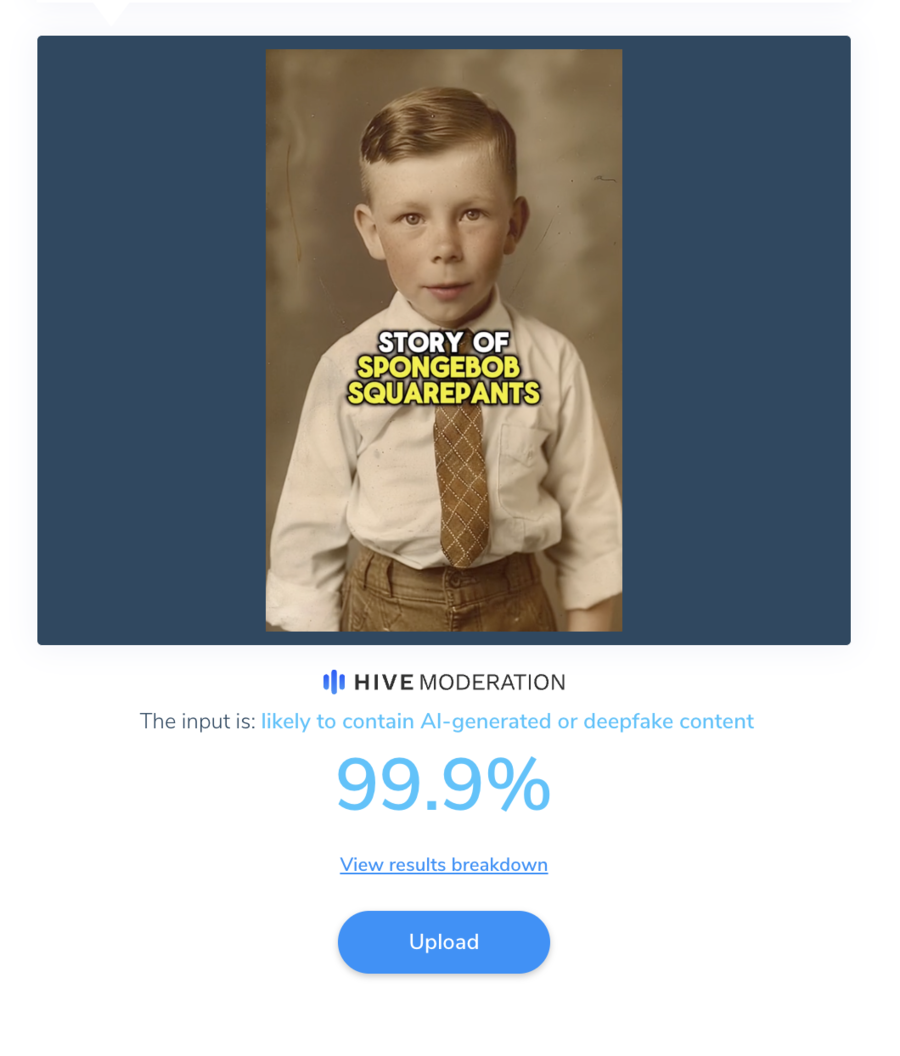
Was SpongeBob SquarePants based on the abusive childhood of a 9-year-old boy in the 1940s, as a video on TikTok suggested? No, that's not true: Stephen Hillenburg, the cartoon's creator, said in a 2015 interview that he was inspired by his marine science background to create the show and its characters. The show was primarily based on a comic book titled "The Intertidal Zone" that Hillenburg created while working at the Orange County Marine Institute in California.
The poster of the TikTok video provided no evidence to corroborate their claim, and Lead Stories found no record of the claim having taken place. Furthermore, the video shared on TikTok was created using AI, according to its creator's profile. An analysis using a third-party tool confirmed that the video was 99.9 percent likely to be AI-generated.
A version of the claim originated in a video shared on TikTok on March 13, 2024, (archived here) with a caption that read:
The real story of spongebob #scarytiktok #spongebob #scarystories #scarytiktoks #horrortok
This is how the post appeared at the time of the writing of this fact check:
(Source: TikTok screenshot taken on Fri May 3 18:42:39 2024 UTC)
Lead Stories ran the above screenshot through the Hive Moderation AI-detection tool, which determined it was 99.9 percent likely to have been created by AI:
(Source: Hive screenshot taken Fri May 3 18:47:49 UTC 2024)
The audio in the video was also generated using AI. The account Eclipse Thrills (archived here) advertises in its profile bio that users can "Get Realistic Ai Voices" through a link (archived here).
In the video, a digitally altered sepia-hued photograph of a young boy is shown narrating the following words:
Did you know the story of Spongebob Squarepants is based on my true and tragic story? Hello, my name is Samuel Secretis, a 9-year-old McDonald's employee in the 1940s. My father was abusive and angry after my mother left him for another man. He forced me to work from a young age rather than go to school so that he could focus on planning ways of getting her back. I had recently got a job at the newest restaurant in town, McDonald's. I was a fry cook. On my way home, I found an injured squirrel who had been hit by a car. I decided to rescue her and named her Sandy. We became best friends and did everything together, like watch TV and practice karate. One day, though, my father came home crying and screaming. He said he done something terrible. He then turned to me and told me that he had dealt with my mother and her new man and that I must now be dealt with too. He grabbed me by the neck and squeezed hard when something happened that I could not believe. He shrieked in pain as Sandy bit down hard on his neck. He fell to the ground and slowly passed away. Sandy had saved me, but now I was an orphan not knowing what to do. Me and Sandy went to the local beach where we could finally be free. We swam away and never returned.
The poster of the TikTok video provided no evidence to corroborate this claim.
This type of content is often referred to as copypasta (archived here) -- copy-and-paste material that is reposted by various online users who do not validate the claims made. A search (archived here) on TikTok for "Samuel Secretis," the name mentioned in the video, found at least two videos (archived here) with the same storyline.
In a 2015 interview with Nicktoons, the television channel that hosted "SpongeBob SquarePants," show creator Hillenburg described what inspired him to create the series. He cited his background in marine biology and love of the ocean as the root of the idea.
Hillenburg said in the interview (archived here) posted on YouTube:
With art, I didn't know really what I wanted to do and with marine biology, I just thought, well, this is a possible career and it's tangible.
Obviously, SpongeBob is comedy but it really was inspired by me liking marine science.
I focused on that [marine science] and I never thought the two [art and science] would come together, actually.
But what happened was, I was working at the Marine Institute -- the Orange County Marine Institute -- right, and at that time period, animation started booming. It eventually led me to go to Cal Arts. I ended up going to graduate school for animation ...
And then one day this guy, Martin Olsen, he was a writer on ['Rocko's Modern Life'], he comes into my office and he sees this comic book that I created when I worked at the marine institute -- it's called 'The Intertidal Zone' and it's basically to teach about tidepools. It started me thinking if I'm going to do a show, I would do it about these invertebrates and these crazy animals that exist in the ocean, and it would be the perfect fusion of things that I did.
It was that moment where I said, maybe I should pursue this, you know, go down this path.
SpongeBob was based on a character from "The Intertidal Zone," originally named Bob the Sponge. A screenshot of the character and a look at the comic book can be seen in this May 1, 2024, NPR feature (archived here) commemorating the 25th anniversary of the cartoon's television debut. The Washington Post also detailed Hillenburg's life and inspiration for his hit cartoon in a 2018 article (archived here) following his death.
Lead Stories has debunked other misleading claims about children's television shows. We reported that the "Teletubbies" television show was not based on a story of four psychotic children who purportedly were abused and who ultimately died horrifying deaths in a mental health institution. And we established that there is no evidence the children's show "Peppa Pig" was based on a science experiment in which a couple injected pig DNA into their daughter.
Other Lead Stories fact checks of claims about the entertainment industry can be viewed here.

















